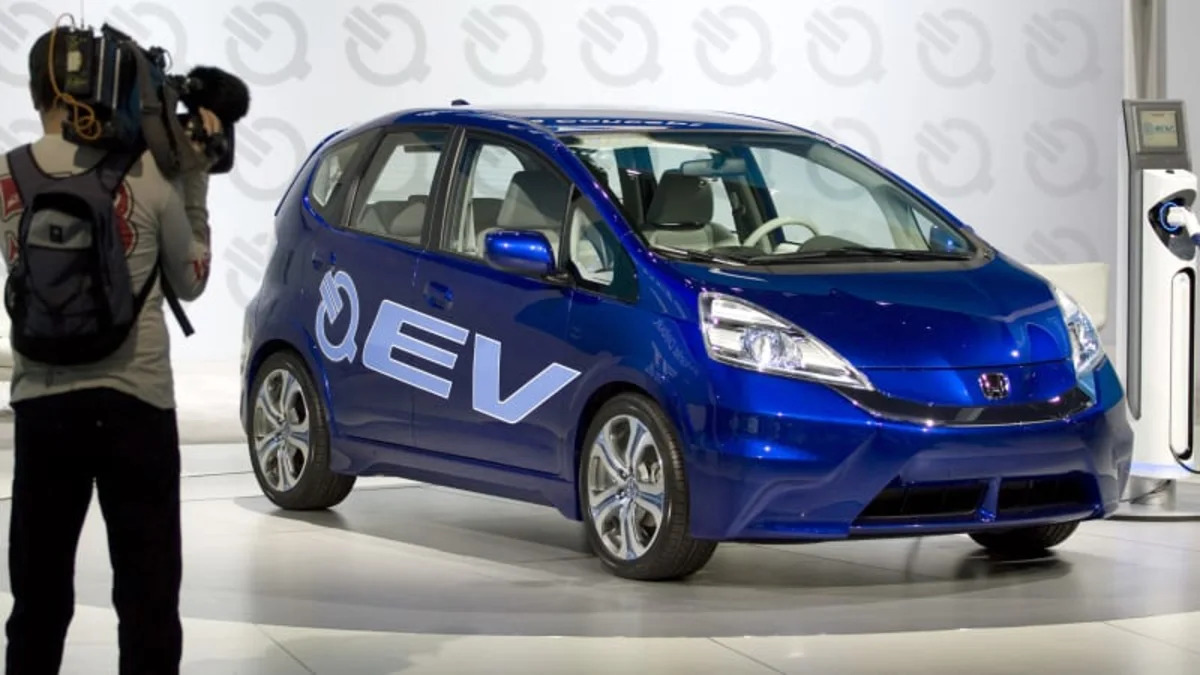A few weeks ago, the University of Minnesota released a study on the environmental costs of alternative fuels. Not really a big news kind of event, right? Well, the study made a splash (at the time and continuing this week) because of the "Oh, really?" headlines that worked as shorthand around the web.
For example, the AP ran with this headline: "Study: Your All-Electric Car May Not Be So Green." (The original article has disappeared from the main AP website, but you can still find republished versions.) But, as Green Car Reports called out, the study doesn't actually say any such thing. Grist went with, "Your electric vehicle might not be as green as you think it is."
Both of those headlines were technically accurate thanks to the careful addition of "may" or "might." But they don't convey the study as the detailed and somewhat complex look at the various ways we can power cars and trucks to get around that it is (you can read the study and the official press release here). There are some scenarios that show EVs to be dirtier than traditional gas-powered vehicles, but that's not the full story. Not by a long shot.
We asked University of Minnesota College of Science and Engineering professor Julian Marshall what he thought of how the study was portrayed in the media. He told AutoblogGreen that this sort of thing is understandable, as long as the headlines get people to actually read the article.
"Typically, journalists don't control the headlines for their stories," he said. "Journalists balance multiple needs, including presenting the facts and grabbing people's attention so the article gets read. The headline above picks out one fact from our study, likely in part because it is the most attention-grabbing; however, understanding our study requires more than just what's in that headline."
"It is correct that in our work coal-EVs are worse than gasoline. But, if people read only the headlines and then conclude 'EVs are bad,' they will have missed a major part of the story: that EVs can, with clean electricity, provide dramatic improvements in air pollution and health relative to gasoline. Indeed, the cleanest scenarios we investigated were EV scenarios. ... My personal preference would be greater attention on the solutions than the problems. 'Switching to vehicles powered by electricity from renewables could save lives' was the headline in our press release."
The coal-EV angle wasn't what everyone latched on to. A local TV news station in Minnesota focused on the ethanol-vs-gasoline aspect, which was indeed in the report as well. Fox Business ran with the scandalous, "Electric cars actually bad for the environment?" As stated, the study only found that to be true when you take coal-powered EVs and compare them to gas cars. And, if that's how to get to a "bad for the environment" vehicle, well, then what does that make gasoline vehicles? The U of M researcher who was interviewed on the segment does a good job describing the nuances, but pay attention to the chyrons that appear on screen when he's talking. You can see both of these videos below, along with the university's own nuanced video on the study. As of this writing, it has only 3,335 views.


Sign in to post
Please sign in to leave a comment.
Continue